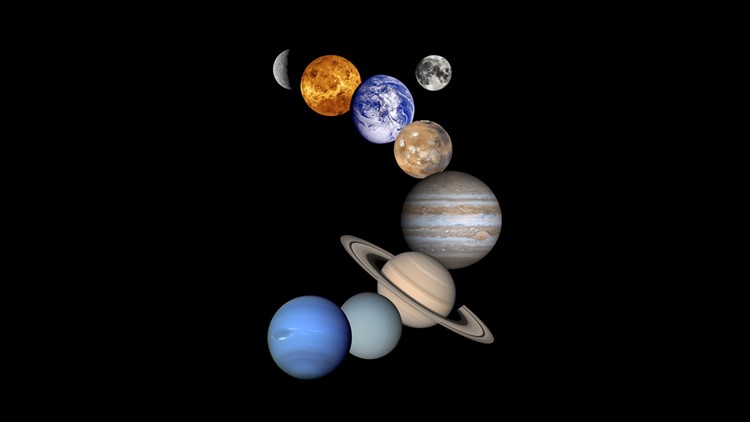ATHENS, Ga. — An amazing feat has been made at the University of Georgia -- Researchers discovered a new planet in another solar system, and they did so using Artificial Intelligence.
Jason Terry, PhD candidate in the Department of Physics and Astronomy, said they developed a machine-learning model that could replicate what humans had done for decades. It was a concept he'd been working on as part of his thesis research.
When run, the model would look at hundreds of images of protoplanetary planes taken by the ALMA Space Telescope in Chile. These images represent rotating discs of gas and dust surrounded by new stars.
"Once a planet passes over a star, the brightness decreases a little bit," Terry said. "The planet is blocking out some of the star from our point of view, and that has very distinct characteristics that are linked to the planet and the star."
Before, humans went through the painstaking process of analyzing these images themselves, looking for areas where that brightness decreased a little. That drop in light would signify the existence of an exoplanet, a planet orbiting another star other than ours. To date, over 5,300 planets have been discovered outside our solar system, according to NASA.
But Terry and his advisor, Dr. Cassandra Hall, knew that the technology was there to help speed up and perhaps improve this process. They taught their models to look for the certain characteristics that are signatures for planets.
"It's a fairly simple image recognition model, once we feed the images through the model, we ask it to tell us if there's a planet. And then, where that planet is," Terry said.
They were testing their machine-learning model with exoplanets already discovered, when they uncovered something new:
"It was sort of an accidental discovery, and that made it all the more exciting," Terry said. "We were shoring up some loose ends in our original paper to show proof of concept, we applied all of our models to data from previous discoveries, and one of them just happened to jump out at us."
An accidental discovery that will forever leave a mark on the future of space exploration by the Georgia Bulldogs.
"This is just the very, very beginning. We set out to prove that machine learning has a place in these sort of observations," Terry said.
The team knows these new tools can help speed up analysis of the planets, and hence help find more planets. Although they currently just use imagery from the ALMA Space Telescope in Chile, AI could be widely useful with more advanced imagery, such as from the James Webb Space Telescope.



